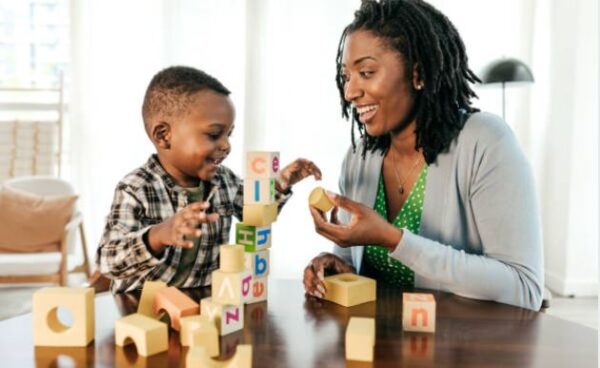Lifestyle
5 tips to build your child’s vocabulary

Children from 0 to 8 years old should have a strong vocabulary as it can greatly improve their reading abilities and contribute to their overall development.
Children pick up new words and ideas at an astounding rate throughout these formative years, much like sponges.
A large vocabulary provides the groundwork for both academic performance and cognitive development in addition to promoting improved communication abilities.
Parents and teachers can provide kids the tools they need to understand complicated concepts, express themselves clearly, and cultivate a lifelong love of learning by creating a rich language environment.
Let’s examine practical methods for fostering young children’s vocabulary growth so they are equipped to handle the demands of schooling in the future.
1. Conversations
One foundational strategy is to have engaging conversations with your child. Speaking frequently and descriptively to your child adds new words to their vocabulary and fosters a rich linguistic environment. Research from the University of Minnesota highlights that children whose mothers frequently talk to them learn almost 300 more words by age two than those whose mothers rarely speak to them.
2. Use real words instead of baby talk
While terms like “bow-bow” for dog or “yum-yum” for food may sound cute, using the correct terms helps children learn the actual words they need. Additionally, exposing children to multiple languages can be beneficial. Studies from Harvard University show that early bilingualism offers significant cognitive benefits.
3. Don’t get scared of using big words
Introducing big words to your child’s vocabulary should not be intimidating. Children can learn complex words if these words are used frequently in their environment. The effort needed for a child to learn simple words like “cat” is the same as for complex words like “Tyrannosaurus.””
4. Label things around the house
This visual association helps children learn the names of objects and enhances their print awareness, preparing them for reading success. Complement this by reading aloud often. Books contain 50% more words than everyday conversation or TV shows, providing a rich source of vocabulary. Reading five books a day can expose children to about 1.4 million more words by kindergarten.
5. Make words fun and accessible
Using a dictionary, exploring non-fiction, creating a word wall, and using word cards are other practical strategies. Engage your child in constructing silly sentences and playing word games like Scrabble or Zingo! Word Builder to make learning fun. Encourage storytelling to help your child use new words in context, enhancing their language skills and creativity.
Building your child’s vocabulary is not just about learning new words; it’s about creating a language-rich environment that fosters curiosity, confidence, and a love for learning. Make vocabulary building an enjoyable and integral part of your child’s daily routine.






